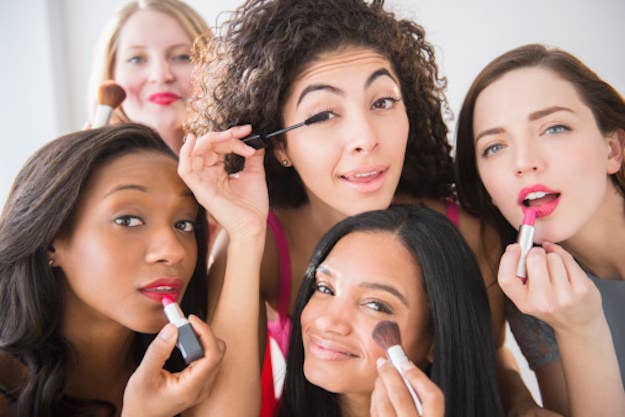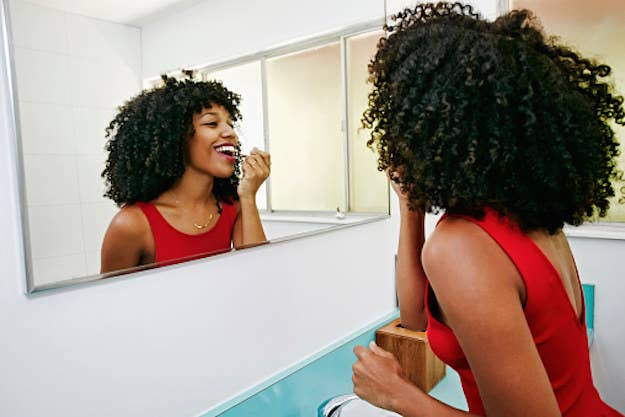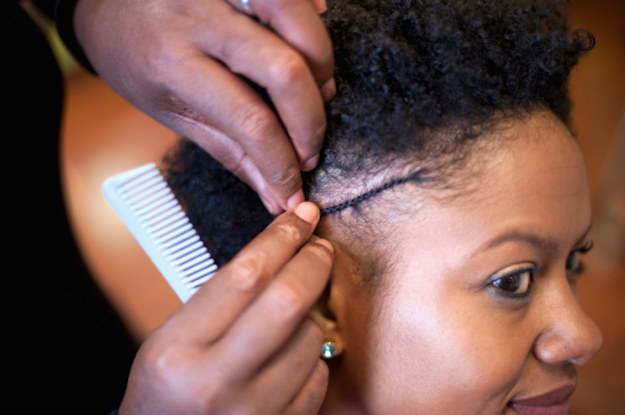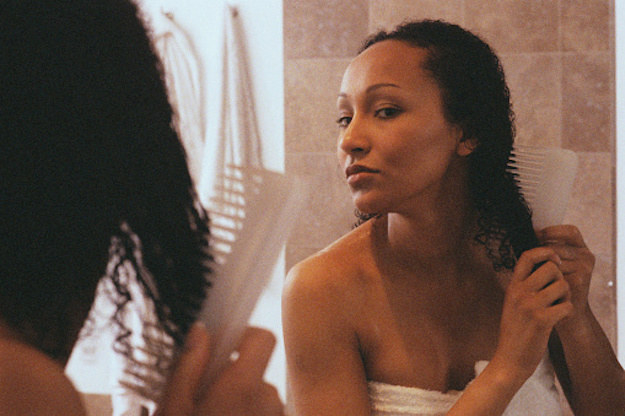
Cosmetics targeting black women are more likely to contain potentially harmful ingredients than those marketed to the general public, according to a study published Tuesday by the non-profit Environmental Working Group.
The group's analysis of the listed ingredients in 1,177 black beauty and personal care products showed less than a quarter of the products getting good scores in a rating system EWG developed to measure the presence of potentially hazardous ingredients. About 40% of the cosmetics products targeting the general public received good scores.
"The top line for us, which is an unfortunate top line, is we realized black women have fewer healthy options when it comes to products marketed to them," Nneka Leiba, the deputy director of research with the Environmental Working Group and co-author of the study, told BuzzFeed News. "That Black women buy and use more of these products could mean they are potentially exposed to more hazardous chemicals."
While black consumers make up about 13% of the U.S. market, they account for as much as 22% of the $42 billion-a-year personal care products business, according to the report.

The disparity is worse for black women. The report found that the percentage of products scored as "high hazard" was about the same for both black and non-black market segments. But black women have fewer "low hazard" options marketed to them.
"If you’re a black woman shopping for these products and you don't have any low hazard options, where do you go to?" said Leiba.
About 280 products evaluated by the group contain what it describes as hormone-disrupting chemicals such as parabens. Thirty products, including facial powders, foundations and styling products, contain imidazolidinyl urea, a formaldehyde-releasing preservative.
The worst-scoring products were hair relaxers, with an average score of 8.1 out of 10, with 10 being the worst hazard score. Hair color and bleaching products were the second most hazardous category with an average score of 7.9, according to the report.

Susanne Montgomery, the director of research at Loma Linda University School of Behavioral Health, told BuzzFeed News that the findings validates some of the concerns she's raised through her research on the role estrogen and endocrine disrupting chemicals in black beauty products may have on black women's high incident rate of breast cancer.
"We're at the point where there is reason for concern and I feel that at the very least we should honor black women and give them the opportunity to discuss the available evidence and make their own decisions," she said. "There's enough people lobbying them to buy products. There needs to be a discussion for them to make their own decision, even though there is not an established clear link yet."

Not enough is understood in science about the health hazards of cosmetics and other personal care products marketed to black women, said Robin Dodson, a research scientist at the Silent Spring Institute, which focuses on women's health and the environment.
"I think we’ve always had that hunch but they were able to say that," she told BuzzFeed News. "It’s great they’re trying to fill a gap in our understanding of products marketed toward certain people."
However she said the report may be limited by the group's methodology to focus on analyzing what is disclosed on the label. Dodson's own product testing has shown that some labels do not disclose all the chemicals that are found in the product.
"There is a potential issue by simply looking at the label and assuming label is complete," she said.
